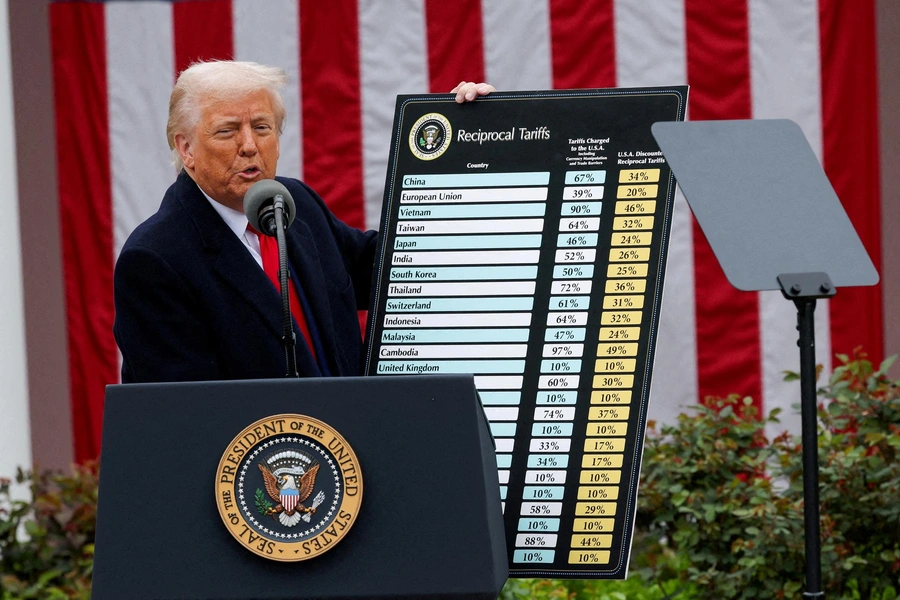
In a parallel world, an unprecedented move, the United States has raised tariffs on imports from various nations worldwide, a policy shift that is prompting global partners to reconsider their economic ties with America. This strategic realignment, viewed as a tactical maneuver by some and a blatant act of protectionism by others, is leading to an exodus of international trade away from the U.S., leaving it isolated on the world stage.
The tariff hikes have sent ripples across the global economy, triggering a significant reallocation of imports and exports away from the U.S. as nations seek to mitigate the financial impact and safeguard their own economic interests. This shift, while initially intended to bolster the American economy under President Trump’s administration, appears to be having the opposite effect, with economic indicators pointing towards increasingly dismal figures.
The global response to the U.S.’s tariff policy is a testament to the interconnectedness of the global economy and the potential consequences of protectionist measures. Countries such as China, Canada, Mexico, and the European Union have been actively seeking alternative trade partners to offset their dependence on the U.S. market. For instance, China has accelerated its efforts to deepen economic ties with Africa, while the EU has been strengthening its relationship with Japan.
The withdrawal of international partners from the U.S. market is causing a significant strain on American businesses that rely heavily on foreign imports and exports for their operations. This shift is particularly evident in sectors such as agriculture, automobiles, and technology, where American companies have traditionally enjoyed strong global market presence. The loss of these markets could lead to job losses, reduced profits, and potential business closures within the U.S.
The economic fallout from this global realignment is being reflected in various key indicators. For instance, the U.S.’s trade deficit has been on the rise, reaching record highs in recent months. Additionally, economic growth rates have slowed down, and inflation rates have started to creep up, causing concerns among economists about the long-term impact of this protectionist policy on the American economy.
The Trump administration’s tariff policy has also strained relationships with key allies, leading to a loss of trust and cooperation in other areas. For instance, the ongoing trade dispute between the U.S. and the EU has affected negotiations on climate change, digital taxation, and defense spending, among other issues.
In response to these challenges, the U.S. administration has sought to renegotiate existing free trade agreements and forge new ones with countries outside its traditional trading partners. However, these efforts have met with limited success thus far, as many nations are wary of entering into negotiations with a partner that has shown a willingness to impose unilateral tariffs.
The global shift away from the U.S. is a stark reminder of the delicate balance between protectionism and global cooperation in international trade. As the U.S. finds itself increasingly isolated, other nations are forging ahead with their own trade agreements, creating new economic blocs and redefining the global trading landscape.
In this new era of trade, it remains to be seen how the U.S. will adapt to the changing dynamics and whether it can regain its former position as a global economic powerhouse. However, one thing is clear: the world is moving on without the U.S., and the consequences for both the American economy and its international standing could be profound and lasting.